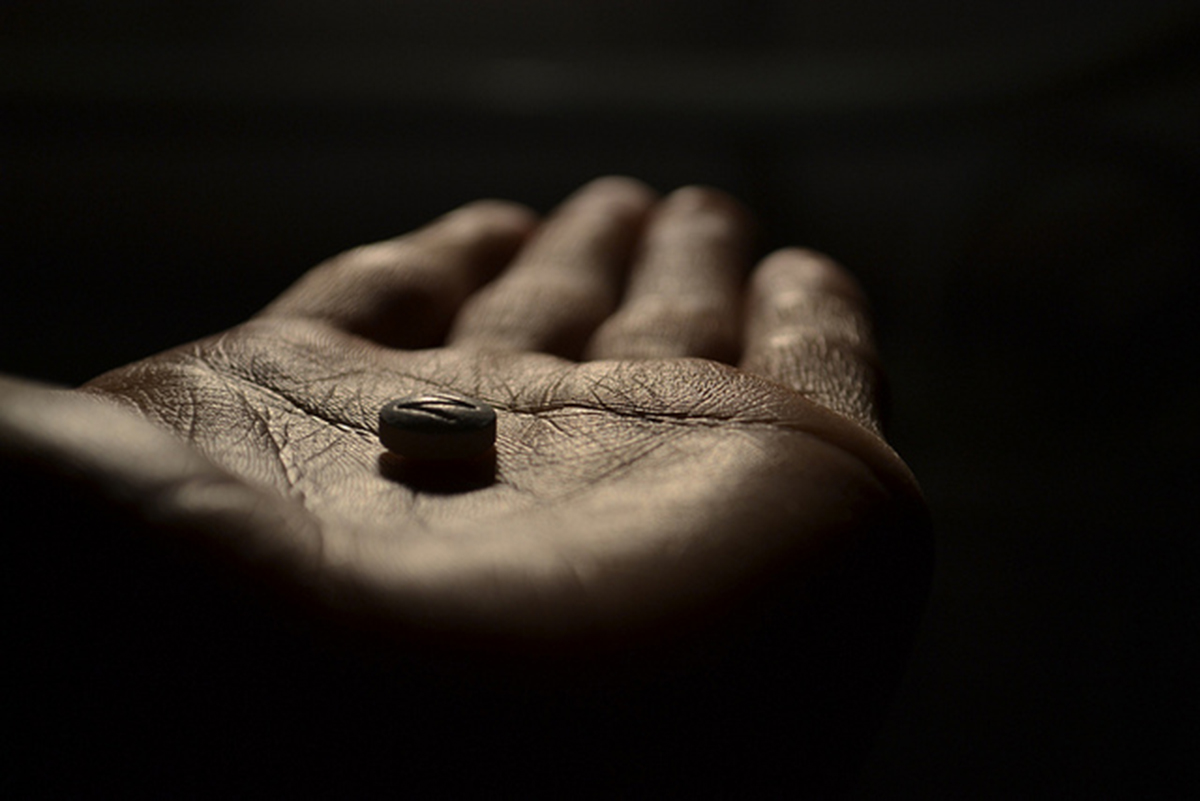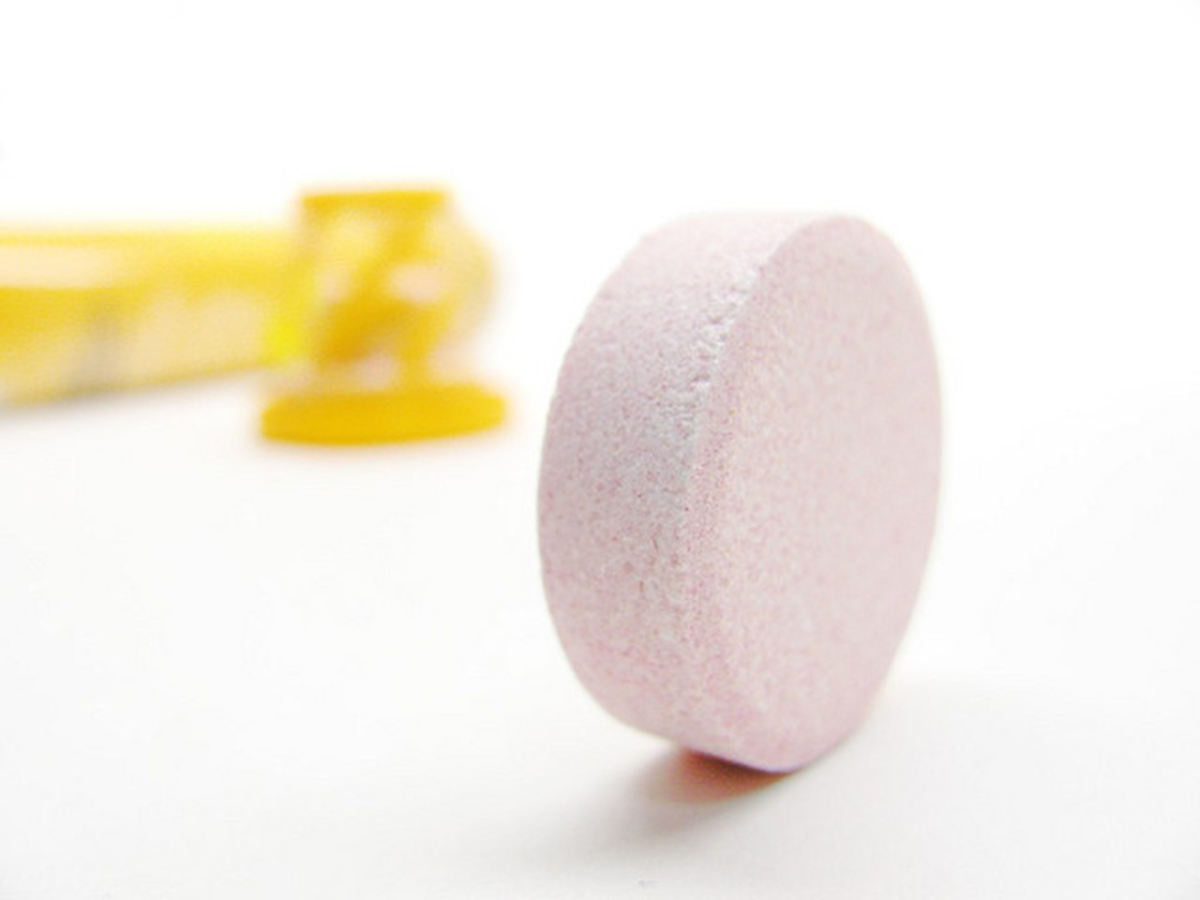"Magical thinking" is typically employed as a pejorative term. Healthy magical thinking, can only up new possibilities through the power of the placebo effect.
Most psychologists define the term "magical thinking" as finding associations that aren't really there, or that groups of psychologists aren't ready to accept are really there. Magical thinking is something all of us experience every day, and something in which many of us indulge on a regular basis. Rather than quoting a lot of well-known science about how humans seek patterns in their experience and come to accept spurious correlations I'll give you some examples of magical thinking in practice.
- When my nephew was about three years old, he went through a phase in which my name could have been "Can-I-Please-Have-A-Quarter-Uncle-Robert." At that time, 25 cents was enough to get one chance to operate a claw in a glass cage to pick out a toy. One evening my nephew asked for a quarter and announced he was going to pick out a green stuffed rabbit toy. He was barely tall enough to see into the machine, but when I gave him the quarter, he went through a good luck ritual he had devised on his own. He blew on the quarter, rubbed his stomach, and said "Ahh." Within seconds he had done the impossible, and he was the owner of a green stuffed rabbit.

- When my neighbor's grandson was five years old, he and his grandparents and I all went fishing. Nobody was catching anything, and the five-year-old was becoming frustrated. Eventually he turned to his grandmother and said, "Can I pray?" She told him yes, and he asked God to give him a fish. The next time he stuck his unbaited hook into the water he caught the only fish of the day for any of us. He asked his grandmother if he could pray again, and she said no.
- I myself have a superstition about picking up (American) pennies I see on the sidewalk. If Abraham Lincoln's likeness is face up, I put the penny in my pocket. Invariably I experience some monetary windfall of $10 or $20 a day or two later. Sometimes I pick three lucky numbers in the Lotto. (I admit that a certain amount of magical thinking is necessary to make a habit of spending even $1 a week in the lottery.) Sometimes I get a coupon for something I would otherwise buy. I have had a $20 bill come in the mail once. Usually finding a penny on the ground leads in a day or two to a small but pleasant surprise.
All of these events are examples of magical thinking. The power of magical thinking, however, is not limited to stuffed rabbits, fish, and $20 windfalls. It can also be applied to health.
Random Magical Thinking Doesn't Work
When I first met him, Sam was a 42-year-old doctoral student. Having worked for many years as a biomedical engineer, Sam had decided to go back to graduate school to earn his PhD so he could pursue research. Sam was floundering in his program, however, because he suffered migraine headaches nearly every week.
Sam's migraines not only came every week, they would last for two or three days. He had seen neurologists, psychiatrists, chiropractors, massage therapists, Reiki masters, hypnotists, and herbalists.Sam really didn't think that Reiki or hypnotism would help, but he tried them out of desperation. For Sam, the only interventions that helped him deal with the pain were a powerful narcotic called Demerol and a less powerful narcotic called Vicodin. Sam had prescriptions that allowed him to buy 12 injections of Demerol and 180 Vicodin tablets every 30 days. Using the powerful medications was, Sam thought, the only thing that kept him from spending half of every week in the emergency room seeking relief from headache pain.
Unfortunately for Sam, the medications just weren't working well enough for Sam to get all his work done and stay in his PhD program. Demerol and Vicodin relieved his pain, but after he took the analgesic drugs, he was basically out of commission the rest of the day. After leaving a well-paid and secure job, selling his house, and cashing in his retirement accounts to pursue his dreams, just a few years before his own children would be entering college, Sam came to equate migraines with potential unemployment. Indeed, Sam had been fired from his last job for taking too many sick days. Sam's problems were compounded by beginning to have panic attacks. Nothing was working to make him better.
Grounding Wishful Thinking In Reality Leads To "Magical" Results
Before Sam achieved the insight that would eventually make him well, he had developed not just one but two major health problems: migraine headaches, and anxiety about having migraine headaches. Fortunately, he had good friends who listened to him and helped apply his engineering mindset to dealing with his health problems. Their reasoning went something like this:
- Sam recognized that his health problems were ruining his career and jeopardizing his family's financial security. He chose to be grounded in the "common reality," a view of the world that others can understand.
- Sam recognized that he accomplished a great deal despite his headache pain and his anxiety. He didn't feel like a success, but he did feel like a fighter.
- Sam resolved that he didn't have to add anxiety to his migraines. He wasn't sure what the right self-talk, the right mantra would be for fending off anxiety, but he was sure he wanted to find it.
- The next few times Sam had migraine headaches he kept in mind that he could finish important tasks and take his medication later. He could salvage some productivity even from his migraine headache days.

Sam took on a teaching position. He knew that he would be fired if he did not show up for classes. However, he also resolved that he would teach his two-hour class before he took a shot of Demerol. There were many days Sam felt awful, but he persevered, and by the end of a year on the job, he had taken only one sick day. Remarkably, he was also taking less Demerol and Vicodin. There was no objective reason that simply making up his mind he was going to achieve his objectives no matter what should reduce his headache pain or his need for medication, but they did. Sam had benefited from the placebo effect.
You have probably heard of placebo pills, sugar tablets with no medication that nonetheless help people feel better. Research scientists used to look at the question of "What is a a placebo?" and answer with derision, but modern researchers have come to recognize an important principle:
Even if you know a pill is a placebo, and even if you know that a health practice should not have any beneficial effect, sometimes it does.
Researcher Ted Kaptchuk of Harvard Medical School has even run experiments that found that people who have bowel pain can be given a sham medicine, told it is a placebo, and still feel better after they take it. The greater question is why this should happen. There is a very simple answer.
The first step in magical thinking that really changes things for the better is recognizing the objective reality of your situation.
If you are sick, you cannot deny that you are sick. If you are poor, you cannot deny that you are poor. If you are facing death, you cannot pretend you will live forever. There's something about accepting reality that unlocks forces inside you that can change your situation. However, that's only part of the power of the placebo effect.
To get better with the power of the placebo effect (unlike the power of pharmaceuticals and medical procedures), you must choose to get better.
It's not enough to recognize you are sick. You must choose to get well, and be able to recognize health when you achieve it.
Could defeating health problems with magical thinking and the power of the placebo really be that simple? No, of course it is not. There are observable processes that can be explained by science that propel any improvement in physical health. However, those processes are likely to occur only after opening up to the possibility of living healthier, happier, and more fully.
- Kaptchuk TJ, Friedlander E, Kelley JM, Sanchez MN, Kokkotou E, Singer JP, Kowalczykowski M, Miller FG, Kirsch I, Lembo AJ. Placebos without deception: a randomized controlled trial in irritable bowel syndrome. PLoS One. 2010 Dec 22.5(12):e15591. doi: 10.1371/journal.pone.0015591.
- Kaptchuk TJ, Kelley JM, Conboy LA, Davis RB, Kerr CE, Jacobson EE, Kirsch I, Schyner RN, Nam BH, Nguyen LT, Park M, Rivers AL, McManus C, Kokkotou E, Drossman DA, Goldman P, Lembo AJ. Components of placebo effect: randomised controlled trial in patients with irritable bowel syndrome.BMJ. 2008 May 3. 336(7651):999-1003. doi: 10.1136/bmj.39524.439618.25. Epub 2008 Apr 3.PMID: 18390493.
- Photo courtesy of klestaaaaaa https://www.flickr.com/photos/klestaaaaaa/7319234074
- Photo courtesy of fbaett: www.flickr.com/photos/fbaett/3085910618/


Your thoughts on this